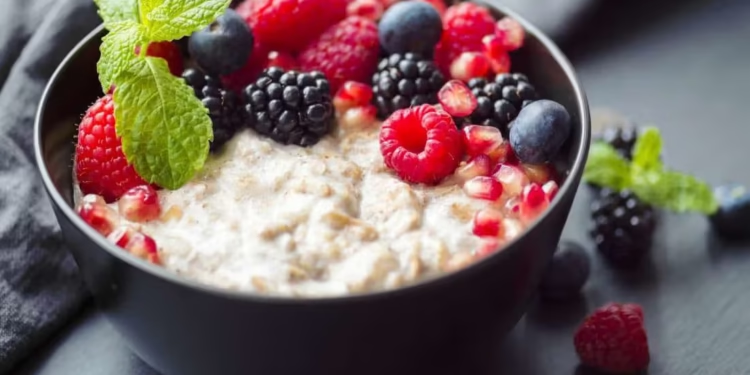Inflammation is the body’s natural response to injury or illness, but chronic inflammation can contribute to serious health problems such as heart disease, diabetes, arthritis, and even certain cancers. The anti-inflammatory diet is designed to help reduce chronic inflammation by incorporating nutrient-rich, whole foods that support overall health.
What is the Anti-Inflammatory Diet?
The anti-inflammatory diet is a way of eating that focuses on consuming foods known to reduce inflammation in the body while avoiding those that may trigger or worsen it. This diet emphasizes fresh, whole, and unprocessed foods packed with vitamins, minerals, and antioxidants. It is not a restrictive diet but rather a sustainable and balanced approach to eating that promotes overall well-being.
Benefits of the Anti-Inflammatory Diet
According to experts, following an anti-inflammatory diet can provide multiple health benefits, including:
- Reduced Risk of Chronic Diseases: Studies suggest that an anti-inflammatory diet may lower the risk of heart disease, diabetes, and neurodegenerative conditions like Alzheimer’s disease (Harvard Health).
- Improved Joint Health: People with arthritis and other inflammatory conditions often report less pain and stiffness when following an anti-inflammatory diet.
- Better Gut Health: This diet includes fiber-rich foods that support gut bacteria and improve digestion.
- Boosted Immune Function: Antioxidants and phytonutrients found in anti-inflammatory foods help strengthen the immune system.
Foods That Fight Inflammation
The key to this diet is incorporating foods with anti-inflammatory properties while minimizing processed and inflammatory foods. Here are some of the top choices:
Best Anti-Inflammatory Foods:
- Fruits & Vegetables: Berries, oranges, spinach, kale, and bell peppers are rich in antioxidants and vitamins.
- Healthy Fats: Olive oil, avocados, and nuts (almonds, walnuts) provide essential fatty acids that reduce inflammation.
- Fatty Fish: Salmon, tuna, mackerel, and sardines are high in omega-3 fatty acids, which help lower inflammation.
- Whole Grains: Brown rice, quinoa, and whole oats provide fiber and nutrients that support gut health.
- Herbs & Spices: Turmeric, ginger, garlic, and cinnamon have natural anti-inflammatory properties.
- Legumes: Lentils, chickpeas, and beans are high in fiber and protein, aiding in reducing inflammation.
- Green Tea: A powerful source of antioxidants that help fight free radicals.

Foods to Avoid or Limit:
- Processed Foods: Fast food, packaged snacks, and refined sugars contribute to inflammation.
- Refined Carbohydrates: White bread, pasta, and pastries can increase blood sugar and inflammation.
- Fried Foods: High in unhealthy fats that promote inflammation.
- Sugary Drinks: Sodas and fruit juices with added sugars can lead to chronic inflammation.
- Excessive Alcohol: Consuming too much alcohol can trigger inflammatory responses in the body.
A Sample Anti-Inflammatory Meal Plan for a Day
Here is an example of a daily meal plan following the anti-inflammatory diet:
Breakfast:
- Oatmeal with fresh blueberries, walnuts, and a drizzle of honey.
- Green tea with lemon.
Lunch:
- Grilled salmon over a mixed greens salad with cherry tomatoes, cucumbers, and olive oil dressing.
- A side of quinoa and steamed broccoli.
Snack:
- A handful of almonds and a small apple.
Dinner:
- Stir-fried tofu with ginger, garlic, and turmeric, served with brown rice and sautéed spinach.
- Herbal tea (chamomile or ginger tea).
Dessert (Optional):
- Dark chocolate (70% cocoa or higher) with a handful of berries.
The anti-inflammatory diet is not just a temporary eating plan but a lifestyle that promotes long-term health. By focusing on whole, nutrient-dense foods and minimizing processed and inflammatory ingredients, you can reduce chronic inflammation and lower your risk of many diseases. Making small, consistent changes to your diet can have a significant impact on your overall well-being. Always consult a healthcare professional before making major dietary changes, especially if you have pre-existing conditions.
For more information on anti-inflammatory foods and their health benefits, visit Dr. Will Cole, Mayo Clinic Health System, and Harvard Health.







